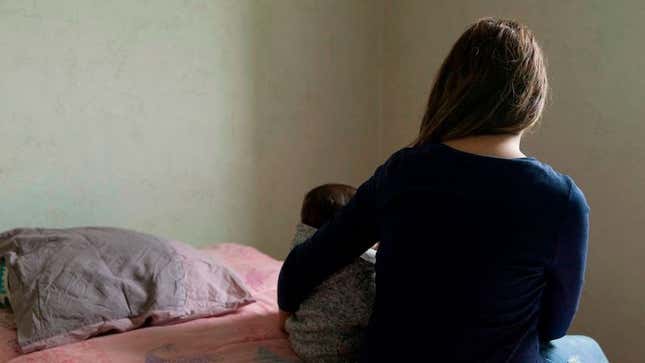'Home Isn't a Safe Place for Everyone': How Coronavirus Is Impacting Domestic Violence Shelters
Latest

As more Americans are being asked to shelter in place and practice social distancing to stop the spread of the novel coronavirus, one group of people will be particularly impacted—survivors of domestic violence and abuse, for whom home is dangerous.
“We know that isolation compounds violence. It increases people’s risk, and it compounds the type of violence that people experience,” Emilee Whitehurst, CEO and president of the Houston Area Women’s Center, told Jezebel. According to the National Domestic Violence Hotline’s CEO Katie Ray-Jones, the hotline has already seen an increase in clients who report that partners are using the threat of covid-19 to, as she put it, “further isolate, increase fear, and manipulate.”
The pandemic is posing a wide array of challenges to domestic violence shelters and hotlines, which already operate on the razor’s edge. Many staff are now working remotely; organizations have been forced to make the difficult choice to close their walk-in service centers; and shelters are reducing capacity in order to keep residents as safe as possible, cutting down the number of available beds during a time when they predict need will likely increase.
Jezebel spoke with advocates in states around the country to hear from them on how they are responding in this moment, why they believe that they will see an increased need for shelter and other forms of support for survivors, and what we can do to help both survivors and the organizations that work with them.
They all underscored that their services are still available, and they’re doing everything they can to maintain critical lifelines for people.
Katie Ray-Jones, CEO of the National Domestic Violence Hotline
While we’re not currently seeing an increase in volume coming into the organization, we expect that might happen as people become isolated with abusive partners and as their ability to seek help becomes severely limited without potential repercussions.
The last two days are the first two days we’ve seen a little bit of a drop in our volume coming into the organization, but the number of people who are mentioning covid-19 and their concerns about how it’s being used in their relationship is increasing.
We’ve started to hear from survivors whose abusive partners are leveraging covid-19 to further isolate, increase fear, and manipulate.
the number of people who are mentioning covid-19 and their concerns about how it’s being used in their relationship is increasing
We’ve heard things like: My partner is threatening to kick me out of the house so I’ll get exposed and get sick; my partner’s threatening that if I get sick, they’re not going to pay for my health care or my medical treatment; my partner’s not letting me go see friends and family, and that’s my safety net, and I feel like they’re trying to isolate me.
-

-

-

-

-

-

-

-

-

-

-

-

-

-

-

-

-

-

-

-

-

-

-

-

-

-

-

-

-

-

-

-

-

-

-

-

-

-

-

-








































